5 start with U start with U
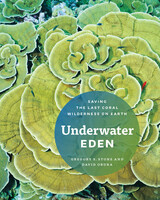
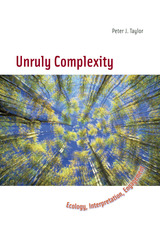
For each realm Taylor shows that unruly complexity-situations that lack definite boundaries, where what goes on "outside" continually restructures what is "inside," and where diverse processes come together to produce change-should not be suppressed by partitioning complexity into well-bounded systems that can be studied or managed from an outside vantage point. Using case studies from Australia, North America, and Africa, he encourages readers to be troubled by conventional boundaries-especially between science and the interpretation of science-and to reflect more self-consciously on the conceptual and practical choices researchers make.
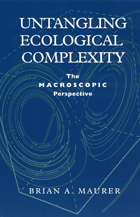
Maurer begins by reviewing the strengths and limitations of reductionist experimental approaches. Although these studies have produced much valuable data, their small scale restricts the kinds of inferences that can be drawn from them. Maurer then demonstrates how statistical methods can be used to identify processes (such as dispersal or nonrandom extinction) that operate across broad geographic scales, yet which also have profound impacts on local ecosystems. This macroscopic perspective, Maurer suggests, provides a powerful tool for untangling ecological complexity.
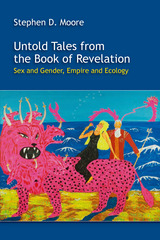
An interlinked collection of essays representing the best of Stephen D. Moore’s groundbreaking scholarship
This collection of previously published essays is a companion to The Bible in Theory: Critical and Postcritical Essays (2010). Chapters engage postcolonial studies, cultural studies, deconstruction, autobiographical criticism, masculinity studies, queer theory, affect theory, and animality studies—methods Moore believes present unprecedented challenges to the monochrome model of Revelation scholarship based on traditional historical-critical methods.
Features:
- Nine essays on biblical literary criticism including two co-written with Jennifer A. Glancy and Catherine Keller
- Contextual introductions for each essay
- Annotated bibliographies
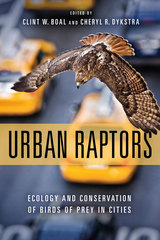
A cutting-edge synthesis of over two decades of scientific research, Urban Raptors is the first book to offer a complete overview of urban ecosystems in the context of bird-of-prey ecology and conservation. This comprehensive volume examines urban environments, explains why some species adapt to urban areas but others do not, and introduces modern research tools to help in the study of urban raptors. It also delves into climate change adaptation, human-wildlife conflict, and the unique risks birds of prey face in urban areas before concluding with real-world wildlife management case studies and suggestions for future research and conservation efforts.
Boal and Dykstra have compiled the go-to single source of information on urban birds of prey. Among researchers, urban green space planners, wildlife management agencies, birders, and informed citizens alike, Urban Raptors will foster a greater understanding of birds of prey and an increased willingness to accommodate them as important members, not intruders, of our cities.
READERS
Browse our collection.
PUBLISHERS
See BiblioVault's publisher services.
STUDENT SERVICES
Files for college accessibility offices.
UChicago Accessibility Resources
home | accessibility | search | about | contact us
BiblioVault ® 2001 - 2024
The University of Chicago Press









